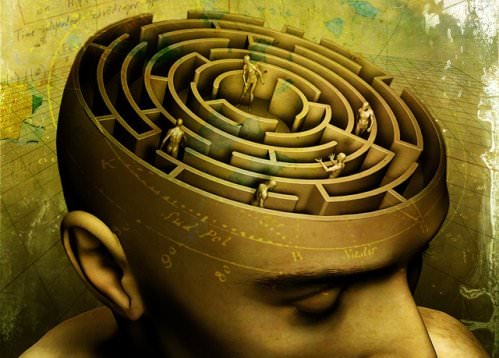-
Why Customer Service Employees Make Good Managers
Tue, 7 Feb 2017, in Employees
Enjoying this one? You might also like 10 Reasons Why You Need Customer Service Software

Support employees have an understanding of all things human.
Since they deal with people day in and day out, customer service employees have a good, seasoned grasp of using whatever resources available to them in order to solve customer problems. They’re also great at resolving conflicts that come in support situations. Which by definition makes them great at resolving conflicts in the workplace, too. And what is a manager but a similar type of people expert – this time at a company level?
Read More: Why Unlimited Vacations Work – but Not for Everyone
A support employee is a strategist
Sometimes it helps to compare the skill sets of good vs. bad managers with the games of checkers and chess. In checkers, every piece has the same role. Every piece has the same behavior, the same strengths and limitations, so your adversary is destined to move every piece the same way as you are.
Yet every chess piece is different, every piece best suited to a specific job in a specific way. As a result, making the best with what you have and timing the right moves is a crucial component of chess. Checkers players, by contrast, don’t need to take into account that dimension of gameplay.
So anyone who wants to get ahead in chess must first understand how each piece moves. If you have a pawn and your opponent has a knight, you must think about your own options while anticipating the behavior of your opponent.

Customer service employees know that every new support interaction is a blank slate. That’s because everyone has differences in their thought processes, reaction mechanisms, or levels of altruism. Just like in chess, smart managers and service reps know not to push a pawn to move the same way as a knight.
So good managers should know how to exploit the differences between people to challenge and lead employees in their own respective ways – the knowledge of which, for example, your it help desk software rep already possess. As a result, managers should be able to adjust to every unique human situation and organize all of their “chess pieces” for an optimal outcome.
What makes a manager bad?
What happens when a checkers player tries to play chess?
A checkers player will be unable to discern from the different types of pieces used in chess. Similarly, bad managers don’t get a full understanding of each employee’s nuances and can’t use them to the advantage of the organization. As a result, a poorly capable manager can end up falling in the following two camps:
-
Autocratic
An autocratic manager behaves like a dictator. This type of manager lives to micromanage and needs to be in constant control. Employees have minimal opportunity to think for themselves and are faced with a constant presence and pressure from the manager. - Relaxed
This type of manager is the opposite of the authoritarian manager. Want half day Fridays? Want desserts? It’s all there. However, this manager (just like any manager) also sets deadlines – so everyone ends up fending for themselves to get anything done.
Obviously, you don’t want to fall into either category. Sadly, too many managers out there exhibit tendencies seen in both of the extremes.
In customer service, you do more with less
Good managers need the same skills that customer service employees have learned to perfect as part of their roles. These include patience, attentiveness and effective communication. Yet the most important skill is the ability to understand and anticipate how others think and act.
Most customers want their problem handled quickly and go on with the day – just like employees need to feel fulfilled and stay productive in their roles. Good managers are able to:
1. Know how to read people
Many managers find themselves in some sort of a management position because they were a good engineer, accountant or developer. Specialization leads to expertise, and as the expert climbs the corporate ladder the “manager” role becomes the next logical step.

That’s where a fundamental shift happens – the person is now a serving a number of people, and being a great engineer or accountant is not necessarily important anymore.
Everyone has strengths and weaknesses – however weaknesses aren’t always understood in the context of the workplace. Weaknesses aren’t something a person is necessarily bad at, but it’s something that drains you of energy and causes negative thoughts to emerge. A good manager, just like a support agent, should never dismiss a weakness. On a contrary, it should be studied and its impact on the individual understood.
2. Understand preferential triggers
A good manager understands that every employee is fundamentally different, requiring different communication and coaching styles. Consider for example the most optimal and productive ways under which people will perform. This is different for every employee. Some need daily confirmation or input from management. Others feel like a weekly go-over is enough.

What motivates us in life? What drives us to get up and do better each day? One employee may have family as a primary motivator; others may seek validation from peers or other organizations. We also have our own preferences and reception to praise. Some prefer being praised publicly, others privately – others get validation through outside sources (customers, peers, etc).
3. Tailor approach to learning style
Since support reps tend to be deeply involved with customers, knowing how to cater to all kinds of individuals becomes second nature to them. Similarly, good managers are able to tailor their unique talents to different learning styles.
-
The analyzer style
This individual can understand a particular task by analyzing all possible options to resolve the task, including seeking out new information. As a result, this person typically hates mistakes and welcomes additional freedom given to mine for new information. - The experimenter style
Someone who harbors the experimental bug needs to be able to get the hands dirty – not in a literal sense, but by way of trial-and-error. Contrary to an analyzer, researching, planning and papering seems to be a waste of this individual’s time. - The examiner style
The third type of learner usually won’t learn by analysis or experimentation. Does it mean they’re not learning or aren’t engaging? Probably not. These individuals need full demos or lengthly descriptions describing the whole picture and how the task relates to it – only then are they able to take ownership of the task.
As we’re all different, you can’t blanket everyone under one particular learning style. Besides, it takes time to understand what works for one person and what doesn’t for another.
To excel at managing others, you must invest into building relationships with other people – and that is often done in customer service. It’s never about changing someone – rather, it’s about guidance in an environment of constant flux.
Customer service employees tend to constantly find themselves in sticky situations. But practice makes perfect – and as a result, they become experts at understanding people and resolving conflicts.
In addition, customer service employees can better read human objectives and determine how to allocate resources to reach these objectives – something that’s particularly helpful to manager, too.
Read More: 20 Reasons Why Businesses Fail (According to Experts)
Tags: employees
-
Autocratic


